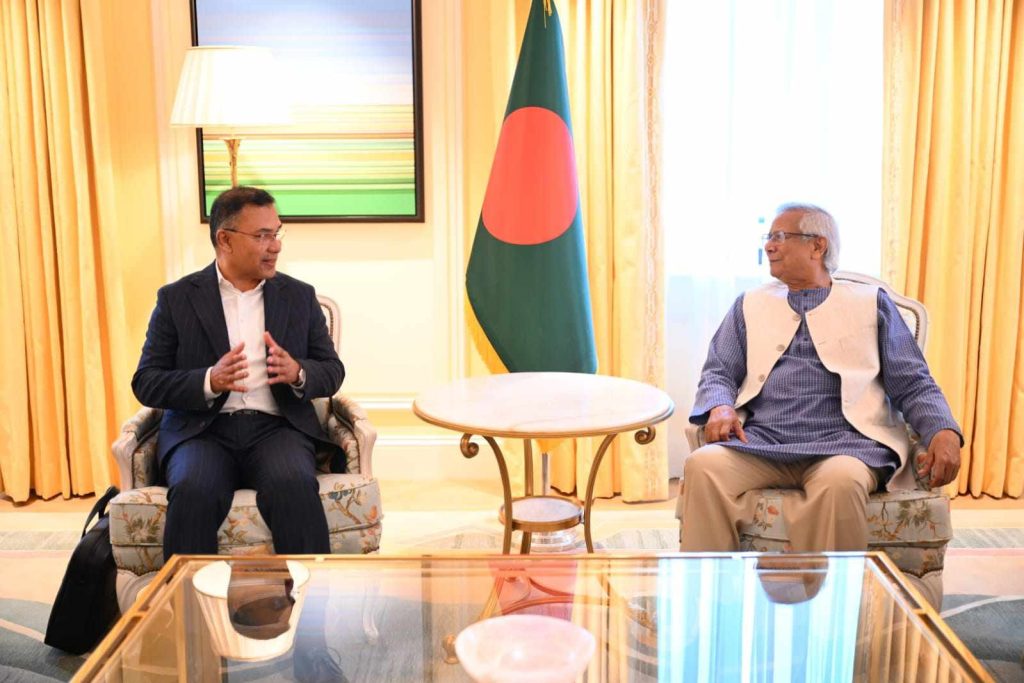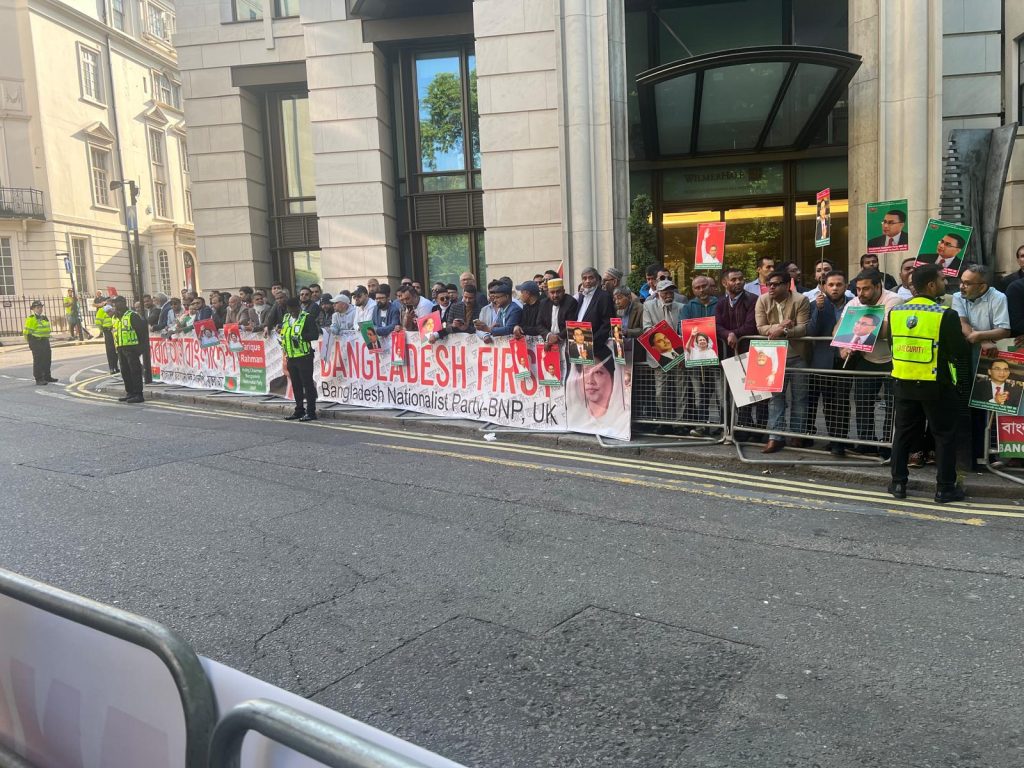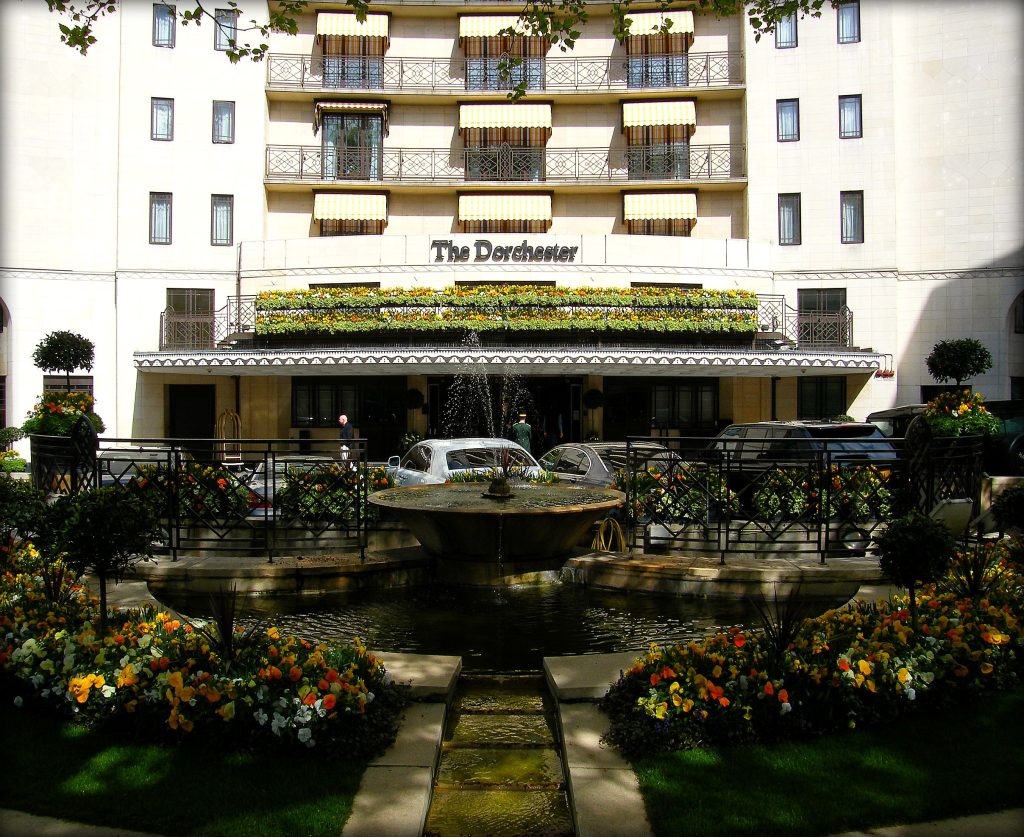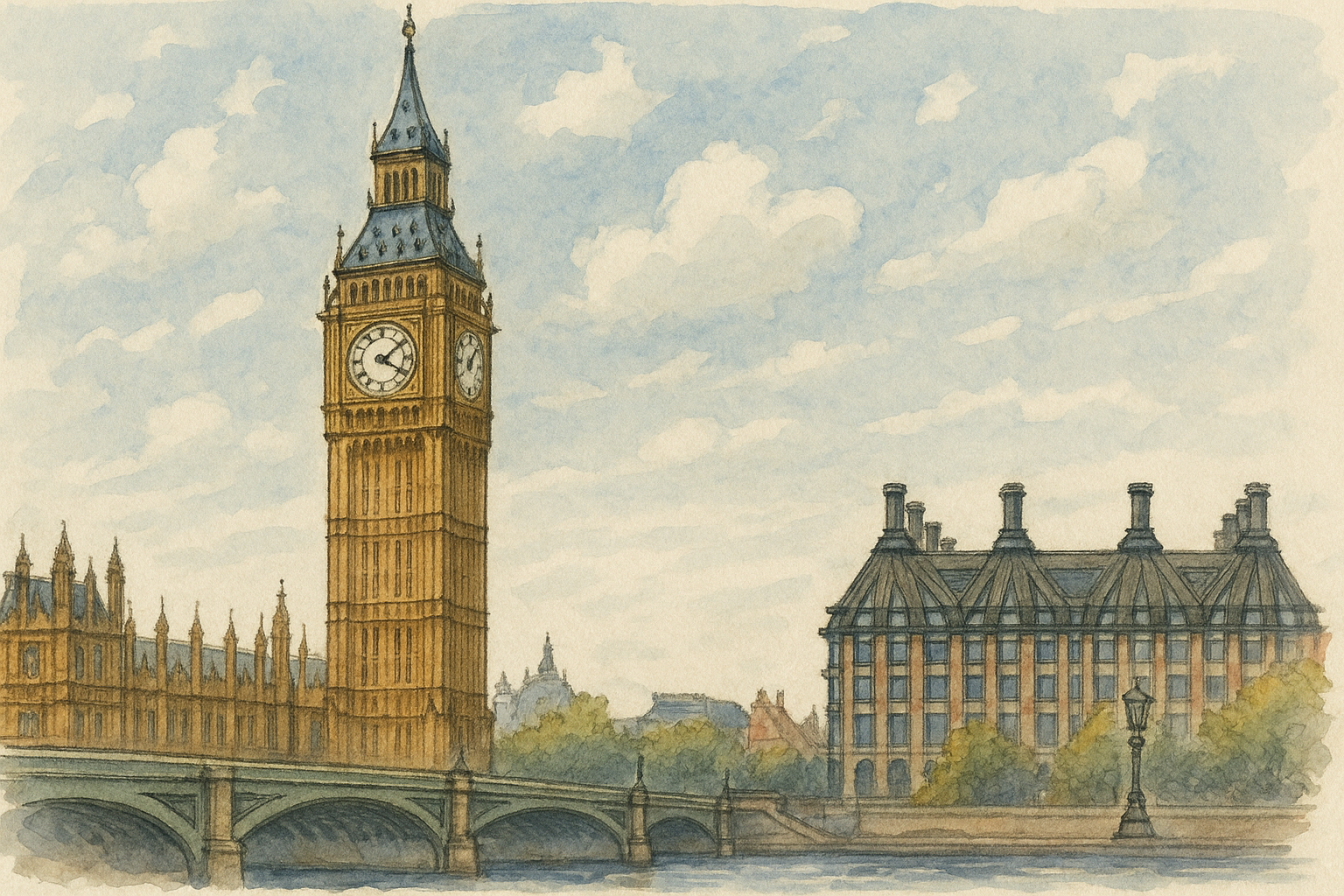Seventy-eight years after the Partition of the Indian subcontinent, the political future of Bangladesh has once again been shaped in London.
This time, however, it wasn’t white colonial officials behind closed doors, but two Bangladeshis: Chief Adviser Dr. Muhammad Yunus and BNP’s acting chairman, Tarique Rahman.
In a significant and confidential meeting at the luxury Dorchester Hotel in Mayfair, the two figures reportedly reached a breakthrough that could chart the next course of Bangladesh’s volatile politics.

Outcome of the meeting: the next general election will be held in early February– neither in early April as Dr. Yunus had announced, nor in December this year as the BNP wanted.
Unlike the colonial past, when decisions about Bengal were made in imperial halls far removed from its people, this time the agenda was set by those with a direct stake in the country’s future.
Historians often reflect on how Bengal’s fate– from its colonial subjugation to its freedom struggles– was repeatedly decided in London’s boardrooms and Westminster chambers. From famine and rebellion to Partition and independence, decisions in London shaped the lives of millions in the region.
This long entanglement began more than four centuries ago.
The English East India Company first arrived in 1608, when Captain William Hawkins docked at Surat. By 1615, diplomatic ties with the Mughal court had granted the English trading rights, and by 1651, a factory had been established in Hugli, just a few hundred miles from Dhaka.

Trade soon gave way to military dominance, culminating in the Battle of Plassey in June 1757, when the British East India Company seized control of Bengal.
By the 19th century, two-thirds of India was under direct company rule, and Bengal– then the most populous province– emerged as a crucial administrative hub.
Though the British Crown took over after the 1857 uprising, the seat of final authority remained in London. From the Partition of Bengal in 1905 to World War mobilisations, and from constitutional acts to independence negotiations, London dictated Bengal’s trajectory.
In 1947, the Partition of British India was once again finalised in London, splitting Bengal into West Bengal and East Bengal (now Bangladesh).
Even after 1971, London’s relevance did not fade. It was the city where Bangabandhu Sheikh Mujibur Rahman first landed en route to Dhaka after Bangladesh’s liberation.
His daughter, Sheikh Hasina, also briefly stayed in London after the assassination of her father and most of her family members in 1975.

Tarique Rahman, meanwhile, has been living in London since 2008, after being forced to leave Bangladesh following a period of intense political and legal pressure.
London is also home to a large and politically active Bangladeshi diaspora– particularly from Sylhet– whose remittances, votes, and influence have shaped transnational political strategies for decades.
Ironically, many Awami League leaders who fled the country following the August 5, 2024 mass upsurge took shelter in London, from where Tarique has continued to operate as BNP’s de facto leader for years.
Today, his drive to the Dorchester Hotel– venue for Friday’s pivotal meeting– may not have been part of the British Raj’s formal institutions, but it belongs to the lineage of elite British spaces that once hosted princes, zamindars, and, later, South Asian political elites.
Opened in 1931, the hotel became a magnet for aristocrats, politicians, and diplomats, including those from Bangladesh.

In more recent decades, the hotel has quietly emerged as a discreet venue for high-stakes South Asian political discussions. Political observers believe Friday’s agreement between Yunus and Tarique marks a turning point.
From colonial conquest to independence, and now into a new era of power realignment, London continues– symbolically and strategically– to cast its shadow over Bangladesh’s political fate.


